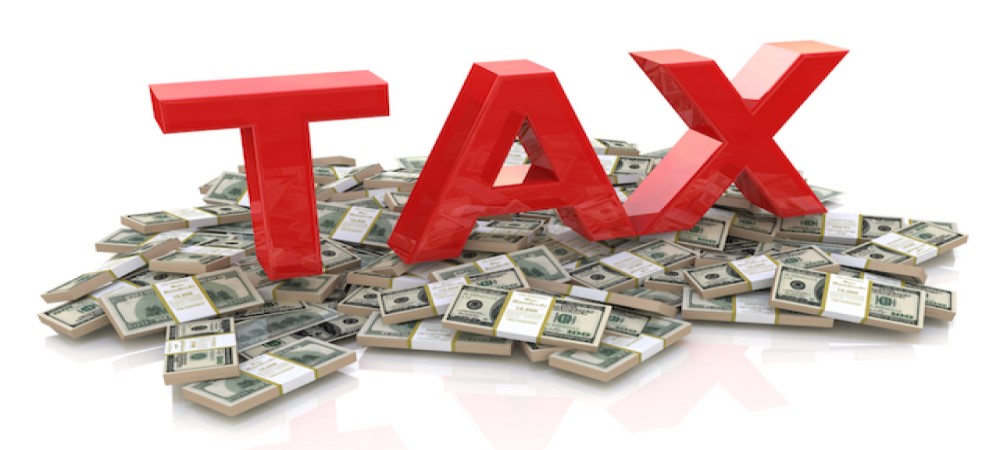- Every state with legal sports betting taxes their sportsbooks’ revenue at a percentage ranging from 6.75% – 51%.
- While the majority of states only send tax contributions to their statehouse, others give to the cities or counties that host the books.
- Sports betting revenue and tax data does not include information from New Mexico, Arkansas, New York, or Oregon.
TALLAHASSEE, Fla. – As the era of legal sports betting is roughly a year and a half in, the revenue figures surrounding legalized wagering are hitting major milestones.
Last week, the latest details for September’s sports betting numbers were recorded. During that month, over $1.35 billion was risked at the nine states’ sportsbooks that report their betting handle. This figure doesn’t include the sports betting data for New Mexico, Arkansas, New York, and Oregon, who do not offer the fullest details of their betting industry.
Still, the $1.35 billion wagered during September at the reported locations helped the sportsbooks hold over 9.75% of the handle, or $132.3 million. This combined revenue set a new monthly record for all of the states, which makes sense as more states continue to launch industries and permit mobile wagering.
However, this number was so much higher than previous months (due to the NFL season) but the increase was much higher than anticipated. In fact, the $132.3 million kept by the licensed sportsbooks in September totaled more than the previous three months of combined revenue ($132.0 million).
The sportsbooks don’t keep this all as profit, as they still must pay their overhead costs, staffing, and day to day operations. Even further, the revenue is individually taxed by each state at a certain percentage, contributing money to the state (and sometimes city and/or county) governments.
In September alone, that tax contribution totaled $17.9 million, where $17.4 million of that went into the statehouses.
Each industry is separate, so the states do not share this evenly. While states like Pennsylvania (5.0 million), New Jersey ($4.5 million), and Nevada ($3.5 million) were responsible for the majority of the combined total, other states like West Virginia ($307,676), Iowa ($334,553), and Mississippi ($450,527) saw much smaller benefits headed to the capital.
Regardless, the combined $17.4 million of state tax contributions help boost the combined total state taxes (since the repeal of PASPA) above $100 million. This number is definitely higher due to the missing information from the four aforementioned states but this is still a major milestone to celebrate.
Now that sports betting is active in 13 states with Montana, Washington DC, Illinois, New Hampshire, and North Carolina all preparing to launch their industries (likely before the Super Bowl), the tax contributions should increase exponentially from here on out.
It is safe to say that gambling has been a major benefit to the states that have legalized sports betting over the last year and a half. While each of these states contributes their sports betting revenue tax to different state coffers, these localities have seen the majority of these funds help fund infrastructure projects, essential childhood and educational programs, and items in the health and human services field.
Advertising Disclosure
In order to provide you with the best independent sports betting news and content LegalSportsBetting.com may receive a commission from partners when you make a purchase through a link on our site.
News tags: Arkansas | Illinois | Iowa | Mississippi | Montana | Nevada | New Hampshire | New Jersey | New Mexico | New York | NFL | North Carolina | Oregon | Pennsylvania | Washington DC | West Virginia

After spending time scouting college basketball for Florida State University under Leonard Hamilton and the University of Alabama under Anthony Grant, Michael started writing focused on NBA content. A graduate of both schools, he now covers legal sports betting bills, sports betting revenue data, tennis betting odds, and sportsbook reviews. Michael likes to play basketball, hike, and kayak when not glued to the TV watching midlevel tennis matches.


 Bitcoin Sports Betting Sites
Bitcoin Sports Betting Sites Best Online Sports Betting
Best Online Sports Betting Famous Sports Bettors
Famous Sports Bettors States With Legal Sports Betting
States With Legal Sports Betting Sports Betting Events
Sports Betting Events




